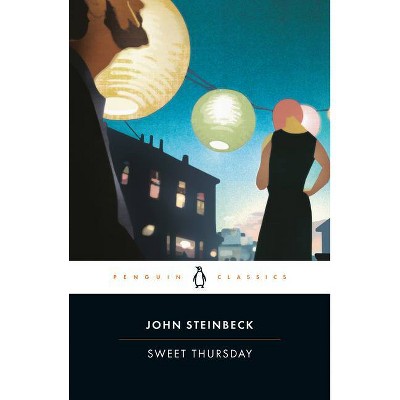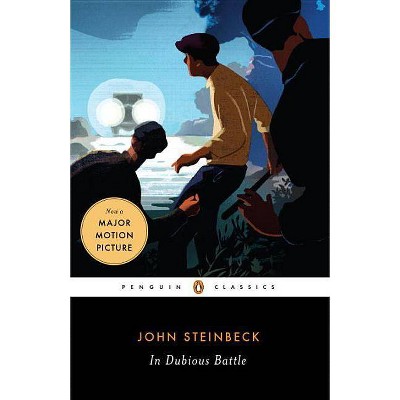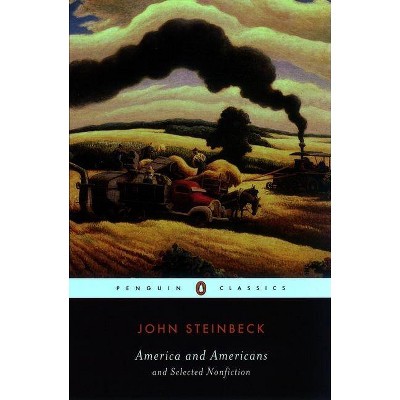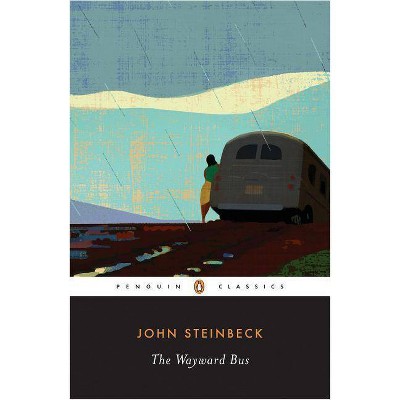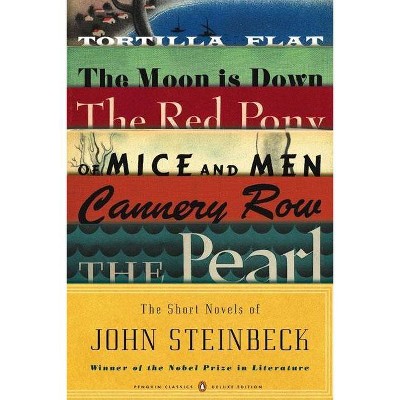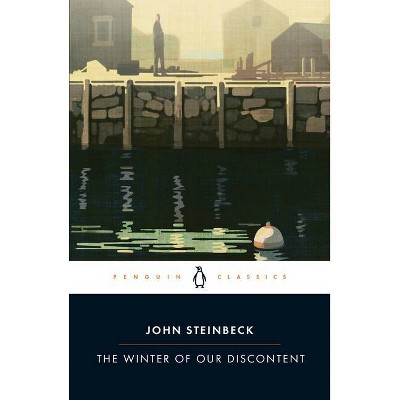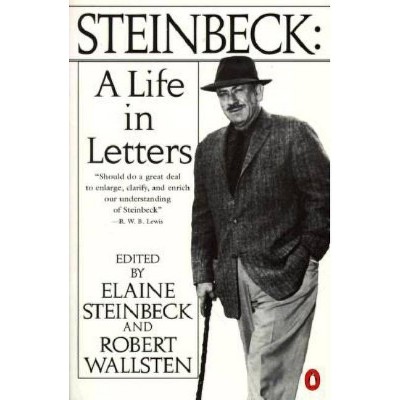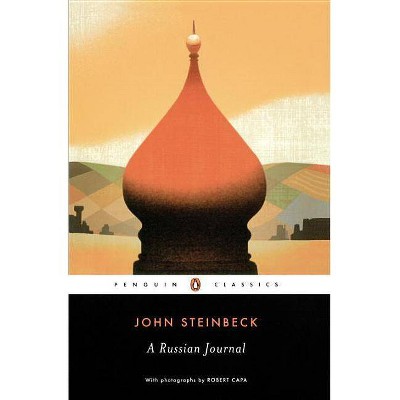Cup of Gold - (Penguin Classics) by John Steinbeck (Paperback)
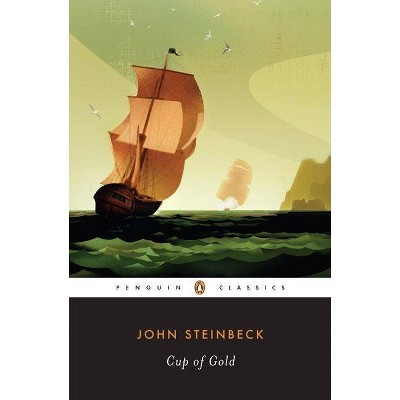
Similar Products
Products of same category from the store
AllProduct info
<p/><br></br><p><b> Book Synopsis </b></p></br></br><b>Steinbeck's first novel and sole work of historical fiction--the violent, exciting story of the infamous pirate Henry Morgan <p/>A Penguin Classic</b> <p/>From the mid-1650s through the 1660s, Henry Morgan, a pirate and outlaw of legendary viciousness, ruled the Spanish Main. He ravaged the coasts of Cuba and America, striking terror wherever he went. Morgan was obsessive. He had two driving ambitions: to possess the beautiful woman called La Santa Roja and to conquer Panama, the "cup of gold." <i>Cup of Gold</i> is a lush, lyrical swashbuckling pirate fantasy, and sure to add new dimensions to readers' perceptions of this all-American writer. This edition features an introduction by Susan F. Beegel. <p/>For more than seventy years, Penguin has been the leading publisher of classic literature in the English-speaking world. With more than 1,800 titles, Penguin Classics represents a global bookshelf of the best works throughout history and across genres and disciplines. Readers trust the series to provide authoritative texts enhanced by introductions and notes by distinguished scholars and contemporary authors, as well as up-to-date translations by award-winning translators.<p/><br></br><p><b> Review Quotes </b></p></br></br><br><b>By the Winner of the Nobel Prize in Literature</b><br><p/><br></br><p><b> About the Author </b></p></br></br><p><b>John Steinbeck </b>(1902-1968) born in Salinas, California, grew up in a fertile agricultural valley, about twenty-five miles from the Pacific Coast. Both the valley and the coast would serve as settings for some of his best fiction. In 1919 he went to Stanford University, where he intermittently enrolled in literature and writing courses until he left in 1925 without taking a degree. During the next five years he supported himself as a laborer and journalist in New York City, all the time working on his first novel, <i>Cup of Gold</i> (1929). <p/> After marriage and a move to Pacific Grove, he published two California books, <i>The Pastures of Heaven</i> (1932) and <i>To a God Unknown</i> (1933), and worked on short stories later collected in <i>The Long Valley</i> (1938). Popular success and financial security came only with <i>Tortilla Flat</i><b> </b>(1935), stories about Monterey's paisanos. A ceaseless experimenter throughout his career, Steinbeck changed courses regularly. Three powerful novels of the late 1930s focused on the California laboring class: <i>In Dubious Battle</i> (1936), <i>Of Mice and Men</i> (1937), and the book considered by many his finest, <i>The Grapes of Wrath</i> (1939). <i>The Grapes of Wrath</i> won both the National Book Award and the Pulitzer Prize in 1939. <p/> Early in the 1940s, Steinbeck became a filmmaker with <i>The Forgotten Village</i> (1941) and a serious student of marine biology with <i>Sea of Cortez</i> (1941). He devoted his services to the war, writing Bombs Away (1942) and the controversial play-novelette <i>The Moon is Down</i> (1942). <i>Cannery Row</i> (1945), <i>The Wayward Bus</i> (1948), another experimental drama, <i>Burning Bright </i>(1950), and <i>The Log from the Sea of Cortez</i> (1951) preceded publication of the monumental <i>East of Eden</i> (1952), an ambitious saga of the Salinas Valley and his own family's history. <p/> The last decades of his life were spent in New York City and Sag Harbor with his third wife, with whom he traveled widely. Later books include <i>Sweet Thursday</i> (1954), <i>The Short Reign of Pippin IV: A Fabrication</i> (1957), <i>Once There Was a War</i><b> </b>(1958), <i>The Winter of Our Discontent </i>(1961), <i>Travels with Charley in Search of America</i><b> </b>(1962), <i>America and Americans</i> (1966), and the posthumously published <i>Journal of a Novel: The East of Eden Letters</i> (1969), <i>Viva Zapata! </i>(1975), <i>The Acts of King Arthur and His Noble Knights</i> (1976), and <i>Working Days: The Journals of The Grapes of Wrath</i> (1989). <p/> Steinbeck received the Nobel Prize in Literature in 1962, and, in 1964, he was presented with the United States Medal of Freedom by President Lyndon B. Johnson. Steinbeck died in New York in 1968. Today, more than thirty years after his death, he remains one of America's greatest writers and cultural figures. </p>
Price History
Price Archive shows prices from various stores, lets you see history and find the cheapest. There is no actual sale on the website. For all support, inquiry and suggestion messagescommunication@pricearchive.us

